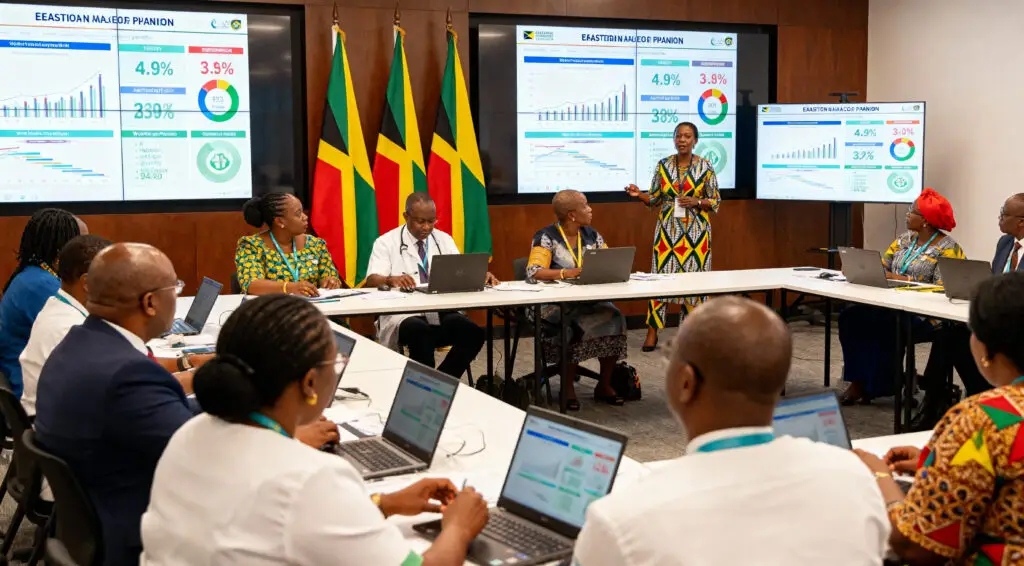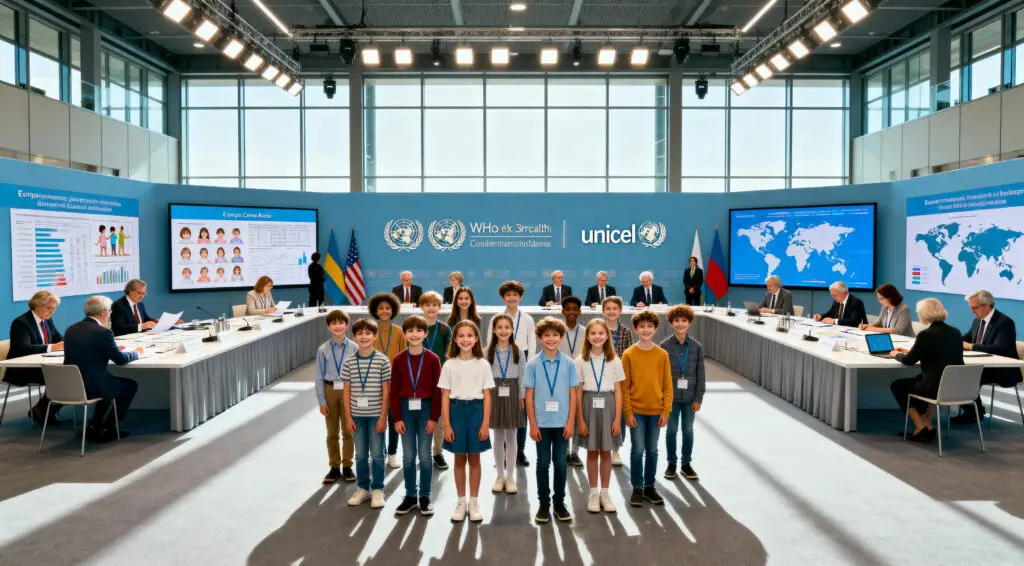Workshop Builds Workforce Planning Skills Across the Caribbean
The Pan American Health Organization (PAHO) advanced its mission to strengthen the health workforce in the Eastern Caribbean through a regional workshop held under the Pandemic Fund–supported project “Strengthening Prevention, Preparedness, and Response to Emerging Health Threats in the Eastern Caribbean Countries (ECC).”
The five-day program brought together 33 participants from Antigua and Barbuda, Dominica, Grenada, Saint Kitts and Nevis, Saint Lucia, and Saint Vincent and the Grenadines. The workshop focused on building participants’ ability to develop resilient health systems capable of addressing emerging threats.

Developing Competence Through the One Health Approach
The training aimed to deepen understanding of Human Resources for Health (HRH) and the One Health approach, which integrates human, animal, and environmental health perspectives. Participants applied the Workload Indicators of Staffing Need (WISN) tool to simulate workforce distribution across surveillance, laboratories, veterinary services, and community health.
Through practical, case-based sessions, participants learned to use the WISN method to improve staffing estimates aligned with pandemic prevention, preparedness, and response (P-PPR) goals within Caribbean contexts.
Enhancing HRH Information Systems for Better Decision-Making
A major component of the workshop was the enhancement of Human Resources for Health Information Systems (HRHIS). Attendees learned how to establish or upgrade HRHIS to meet international standards. These systems enable health authorities to monitor workforce data, assess skill distribution, and forecast staffing needs in real time critical functions during public health emergencies.
PAHO’s regional HRH Unit demonstrated how to integrate HRHIS into national health strategies. With accurate data and informed workforce planning, countries can better deploy staff and ensure equitable access to essential services.
Recommended Article: Air Pollution’s Hidden Effects on Your Body and Mind
Supporting Regional Collaboration and Implementation Plans
Country teams drafted national implementation plans for integrating the WISN and HRHIS tools into their own health systems. Grenada and Saint Vincent and the Grenadines were recognized as regional leaders for already initiating system-wide workforce reforms.
Laboratory and disease surveillance specialists collaborated to define workload components, ensuring alignment between lab operations and surveillance functions both crucial pillars of pandemic readiness.
Strengthening Regional Preparedness Through Partnership
Dr. Amalia Del Riego, PAHO/WHO Representative for Barbados and the Eastern Caribbean Countries, emphasized the importance of collective action. “Pandemic preparedness needs not only strong systems but also strong collaboration,” she stated.
She highlighted that joint training initiatives help nations share expertise, coordinate workforce planning, and build a more resilient regional health network. The event concluded with presentations showcasing innovative ways to integrate WISN and HRHIS into ongoing national health reforms.
About the Pandemic Fund Project in the Eastern Caribbean
The broader Pandemic Fund initiative aims to reduce disease burden, save lives, and limit the economic and social impacts of health crises. Implemented by PAHO in collaboration with the Food and Agriculture Organization (FAO) and the World Bank, the project promotes a “One Health” framework that connects human, animal, and environmental health systems.
Its four core objectives are to enhance surveillance, strengthen laboratories, build workforce capacity, and foster cross-sector collaboration. These priorities are designed to help Eastern Caribbean nations respond rapidly to future health threats through coordinated, data-driven action.























